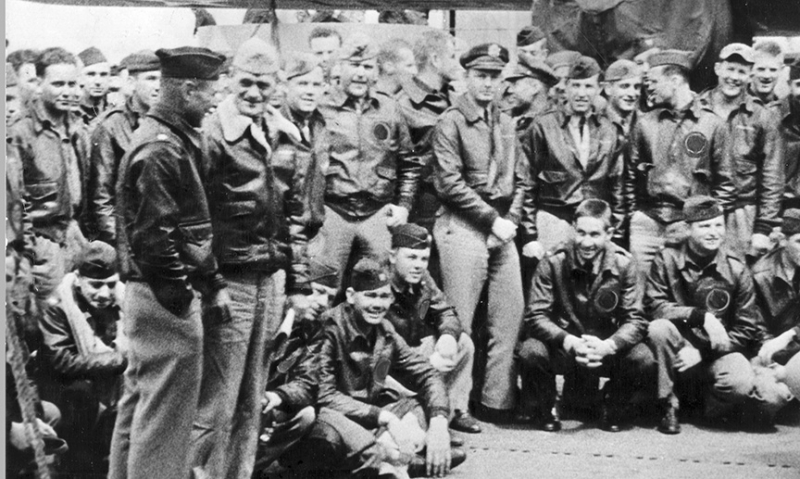
Doolittle Raiders give Congressional Medal to museum
Exactly 73 years after the daring Doolittle Raiders' assault on Tokyo, the last two surviving members presented the group’s Congressional Gold Medal to the National Museum of the United States Air Force on April 18.
Retired Lt. Col. Dick Cole, 99, gave the medal to the museum's director in a ceremony at the museum near Dayton, Ohio. "We want to thank Congress for enacting and presenting the Congressional Gold Medal to the Tokyo Raiders this day," said Cole, one of the two remaining Raiders. "We are honored to accept this prestigious and most appreciated award."
The medal, the highest civilian honor Congress can give on behalf of the American people, arrived in a ceremonial B-25 flight. It was awarded to the Raiders in May of last year.
"We proudly hand over our Congressional Gold Medal to (museum director retired Lt. Gen.) Jack Hudson, who we trust will respectfully guard it and have it securely displayed ... for the world to see and appreciate," Cole said.
The group's medal will join the museum's diorama that depicts the legendary raid. Hudson has pledged their inspirational story "will live on."
Cole, a Dayton native, was mission leader Jimmy Doolittle's co-pilot for the B-25 bombers' attack that stunned Japan and lifted American spirits less than five months after the attack on Pearl Harbor.
Joining Cole at the event was retired Staff Sgt. David Thatcher, 93, of Missoula, Mont.
Cole flew with Doolittle in plane No. 1 of the 16 launched from an aircraft carrier. Thatcher was engineer-gunner aboard the 7th plane, nicknamed "The Ruptured Duck," whose crew's crash-landing and evasion of Japanese troops in China was depicted in the movie "Thirty Seconds Over Tokyo."
In an interview with American Legion Magazine two years ago, Thatcher says they volunteered for the mission as a sense of duty. “The most memorable moment of the mission wasn’t the training, long over-water flight or the dropping of the bombs in Tokyo,” he said. “It was the crash landing. You just can’t forget something like that.”
